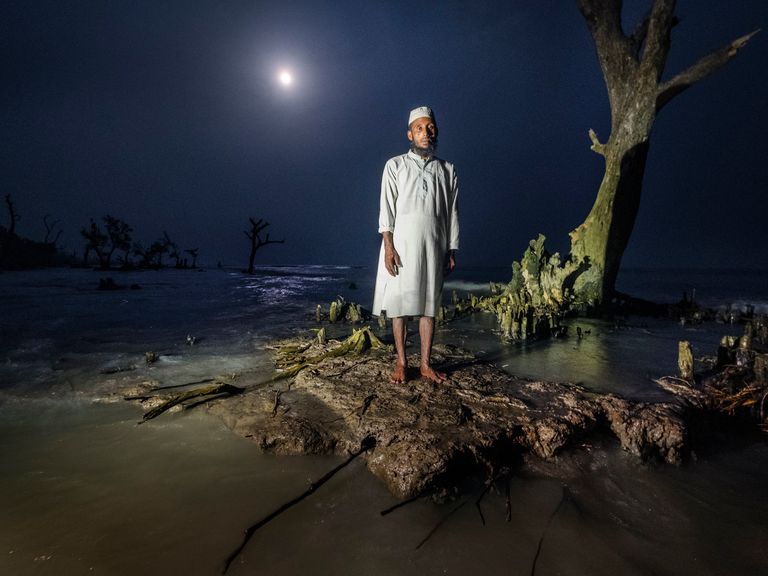Project Detail: Climate Injustice
Contest:
Swiss Storytelling Photo Grant 9th
Brand:
LuganoPhotoDays
Author:
Alain Schroeder
Project Info
Climate Injustice
Bangladesh faces severe impacts of climate change, including more frequent droughts, floods, cyclones, melting glaciers, rising sea levels, and internal migrations.
Bangladesh is severely impacted by climate change and its intensifying consequences. More frequent droughts, floods, powerful cyclones, melting Himalayan glaciers exacerbating riverbank erosion, rising sea levels threatening coastlines and increasing the salinity of rivers and soil, are causing significant losses in crops, property, and human lives.
Climate events also lead to escalating unemployment and poverty. Forced internal migrations are becoming commonplace, with approximately 2,000 people arriving in (already overcrowded) Dhaka daily. Many climate migrants end up in urban slums, while others settle on unstable riverine islands known as "chars." Thousands more seek to emigrate to India or Gulf countries for work opportunities.
Bangladesh, densely populated and largely situated less than 12 meters above sea level, is particularly vulnerable to global warming. Current predictions on rising sea levels indicate that 15% - 20% of the country could vanish by 2050, potentially displacing 25 to 30 million people and leading to conflicts in the region.
To achieve climate justice, Western nations, largely responsible for greenhouse gas emissions, must adopt a global approach to the complex interplay between the environment and the society in this precarious Asian region. Moreover, Bangladesh needs financial and technological assistance to address the challenges it faces as the first country to experience such large-scale consequences of global warming and climate change.


















